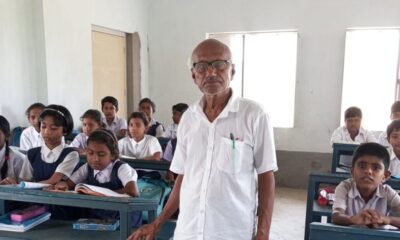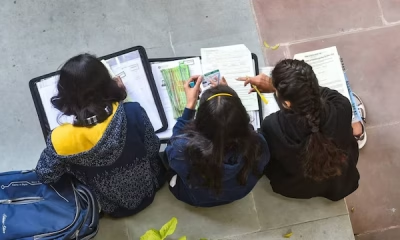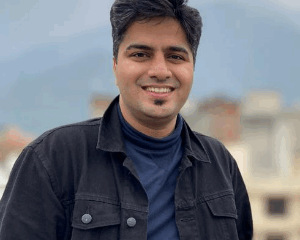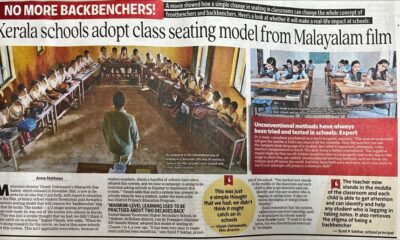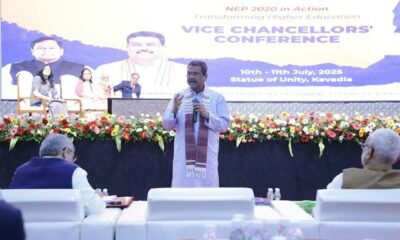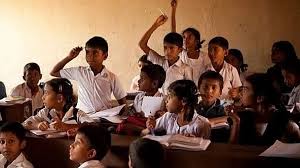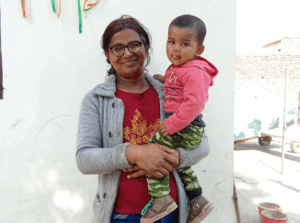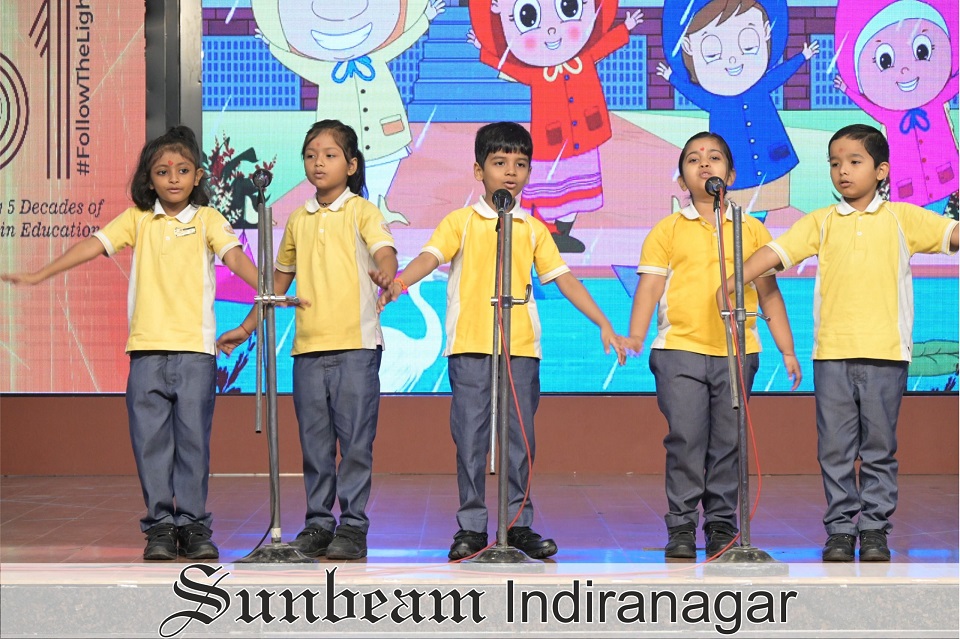Inspiration
The world’s first SOLE Cambridge School – Paradise School Goa
We are a school in Paradise (ie Goa) hence the name. However, the meaning goes deeper than that. The Cambridge English Dictionary definition of Paradise is: ‘a place or condition of great happiness where everything is exactly as you would like it to be’.
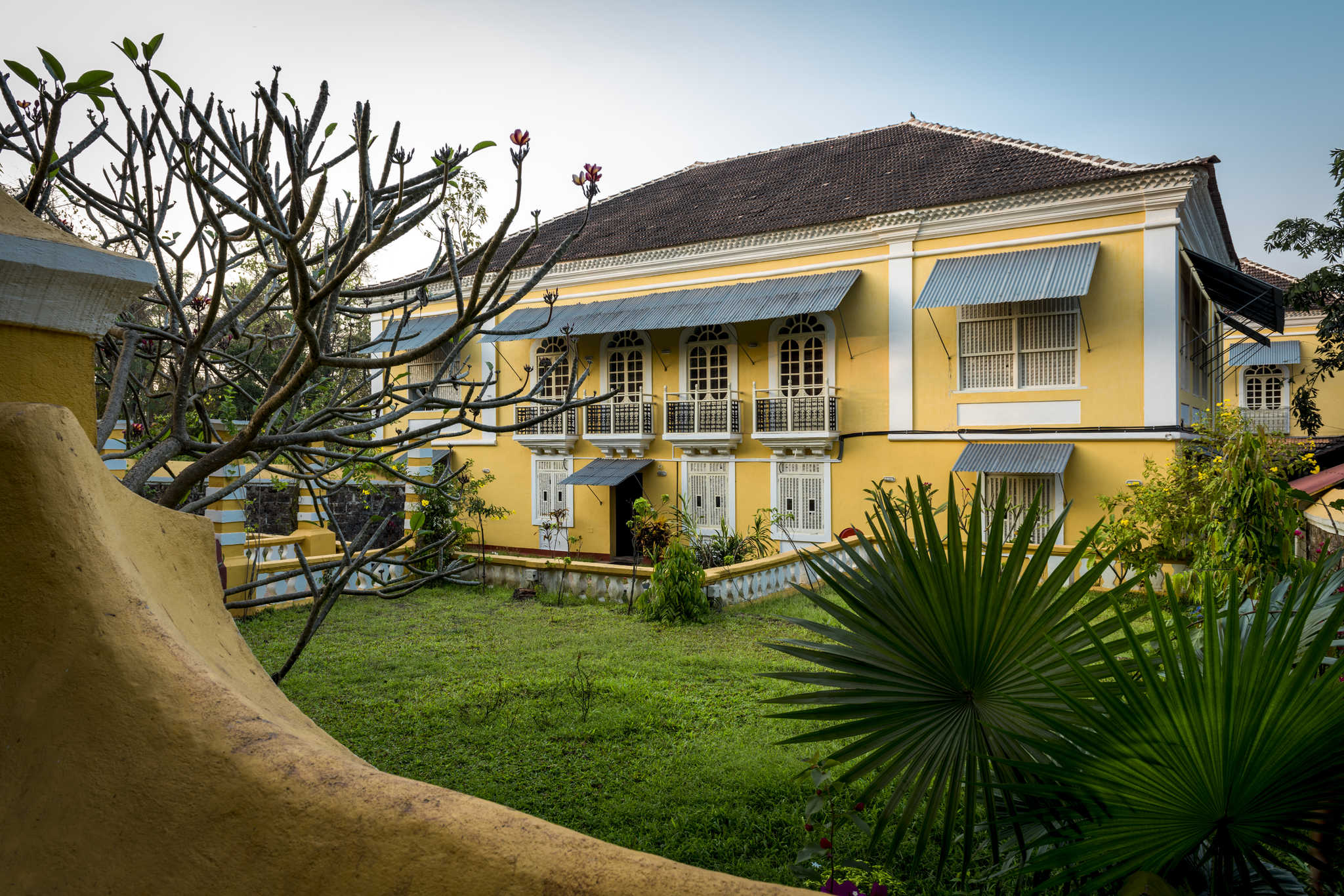
Shilpa Mehta, Founder, Paradise School Goa, tells MARIE D’SOUZA what goes into making this SOLE Cambridge School a real game-changer
What's in a name…? Tell us the reason and significance of the name 'Paradise School'.
We are a school in Paradise (ie Goa) hence the name. However, the meaning goes deeper than that. The Cambridge English Dictionary definition of Paradise is: ‘a place or condition of great happiness where everything is exactly as you would like it to be’.
This most perfectly sums up the ethos of Paradise School because we are daring to forge new ground-breaking paths in education. We are genuinely interested in the potential and well-being of our learners, as well as teaching faculty. In that sense, we are not just a school but an educational community, with wider concerns at heart.
This is why we use the SOLE at the centre of our learning culture. Sugata Mitra’s method of Self-Organising Learning Environments allows children the intellectual freedom to discover concepts for themselves and be enchanted by this process (rather than jaded as with most schoolroom practises). This liberation is important. We use it to fuel our mainstream curriculum of the International Cambridge Board, which also supports active and dynamic learning. We find the two complement each other perfectly. Best of all, the learners thoroughly enjoy it which makes for a happy environment.
We are a SOLE Cambridge School – the world’s first. Fusing the present and the future. Hence the name Paradise.

How does Paradise School perceive the Future of Learning?
It is mainly an attitude. One has to let go of the old shore in order to find the new. However, going out to sea takes courage, fortitude and resilience when familiar landmarks disappear. One has to be willing to reinvent the wheel. But if any area needs it, it’s education, as the future stakes of our children depend on it.
This attitude needs to show up in management, infrastructure, classroom design, tech choices and overall the culture and community of the school. The biggest shift is putting the child’s voice at the centre. Often schools and institutes silence children and force them to accept the way of tradition. We have to teach children to be their own leaders, otherwise, they will never survive in the new world of not just the 21st but also the 22nd centuries.
Moving away from a patriarchal, top-down, hierarchal, authoritative structure to an inclusive, collaborative, child-centred, self-organising model is the key. We are all in together. Education should be the most exciting place on earth, for students, teachers and school creators. It’s where the best innovation can happen. Instead of suppressing it, we have to wholeheartedly allow it to emerge.
As Abraham Lincoln said, ‘the best way to predict the future – is to create it’.
'Taking education to the next level'… How does Paradise School strive to achieve this?
There are many important aspects of changing the game.
Firstly, we are creating a personalised learning experience for our students, rather than a standardised one. This is the most vital shift. It is good they move at their pace so learning is authentic and real. We favour stage, not age, and keep our class sizes small, no more than 15. In that sense we are a boutique school, offering a bespoke and tailored educational experience.
We like the latest thinking in pedagogy and have therefore chosen the most modern and contemporary subjects from the Cambridge programme including Global Perspectives, Enterprise, Environmental Management, World Literature, Fashion and Textiles and Digital Literacy. At A’level we hope to add Media Studies, Marine Studies and Psychology – as well as all the usual STEM subjects.
We offer the full flexibility of the Cambridge system by allowing our IGCSE learners to schedule their own exams over the November, March and June series. This means they don’t have to take all their exams in one go (which is stressful). Much better to stagger them in order of preference. We feel this puts the learner in charge of the examination process rather than at the mercy of it.
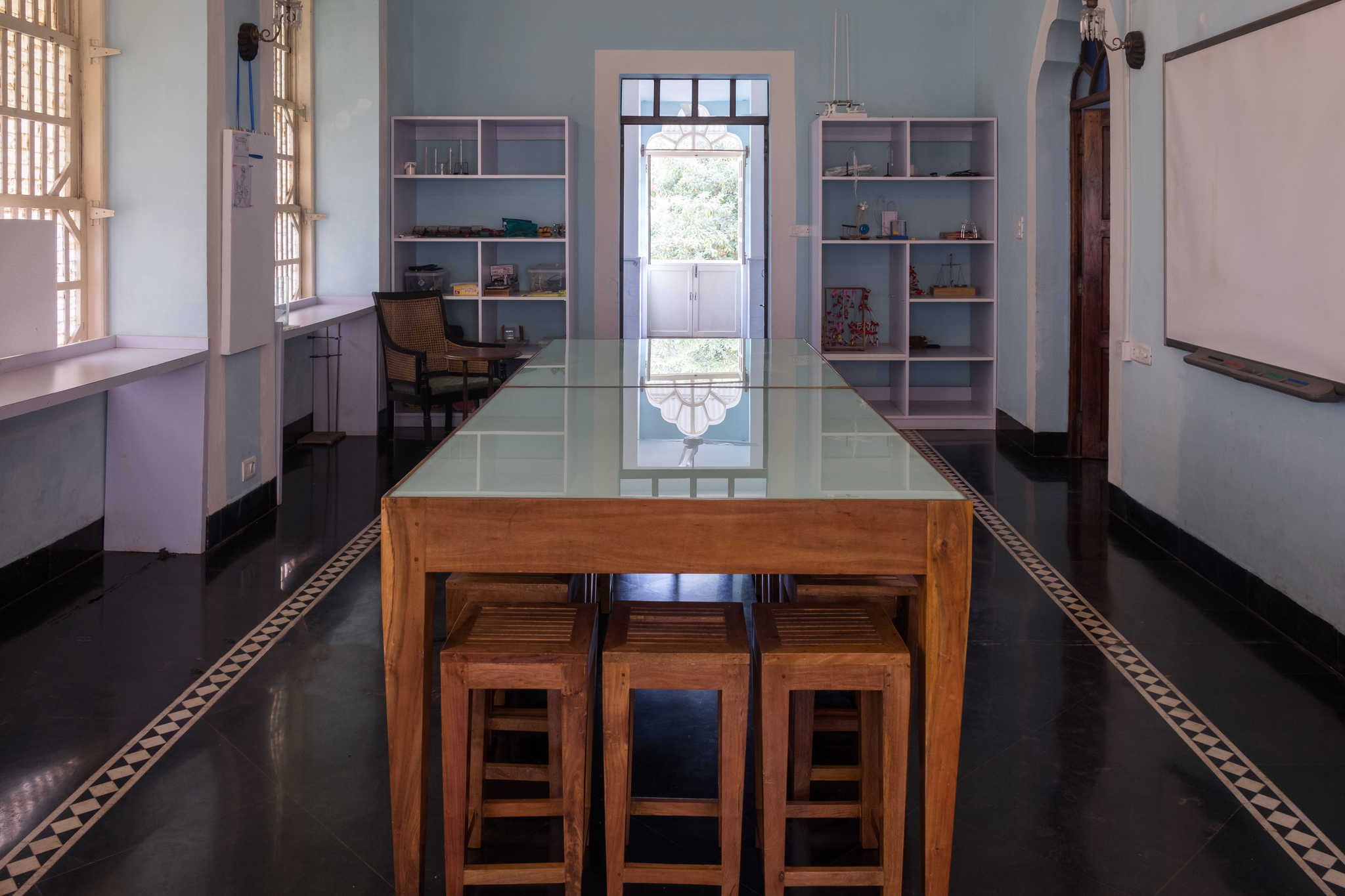
We embrace the internet and technology, harnessing these forces for educational purposes. Secondary children are allowed to bring their phones and devices to school; we often have digital reviews about best policy on their use, as discussed with the children themselves. Self-control is our ultimate aim. We would like our kids to be creators on the internet rather than mere consumers. As a school, we have been studying Digital Citizenship since the onset, to give children a positive and informed handle on the virtual universe.
We don’t skimp on quality. Paradise tech is iMacs and iPads. We favour the IOS platform as it offers the best and most magical experience of the internet and technological advancement. An Apple Developer teaches in our school a programme he designed called ‘The A Game’. This is where kids get to use and become very proficient at the full suites of apps the platform affords.
Practically, we have personally designed all the furniture in the school so that it is dynamic, flexible and interactive (you can write on the surface, like a whiteboard). Once again, this gives children and teachers the day-to-day power to express themselves in the classroom rather than be stuck in a rigid grid of conformist infrastructure.
In terms of our day-to-day reality, we don’t have uniforms and are on first-name terms with each other (no Sir and Miss). We have found SOLE has gone beyond the classroom and has become part of our culture making us democratic, cooperative, innovative, seeking and unafraid to explore. Most importantly, we are able to manage people’s differences of opinions with goodwill and equanimity. This is the spirit with which Paradise operates.
This goes to the heart of our community, where we have open, supportive and genuine relationships with each other – from the Trustees, to our School Board, the parent body, faculty, and children. Bullying is rare in our school. Creating a bedrock of safety and harmony is key.
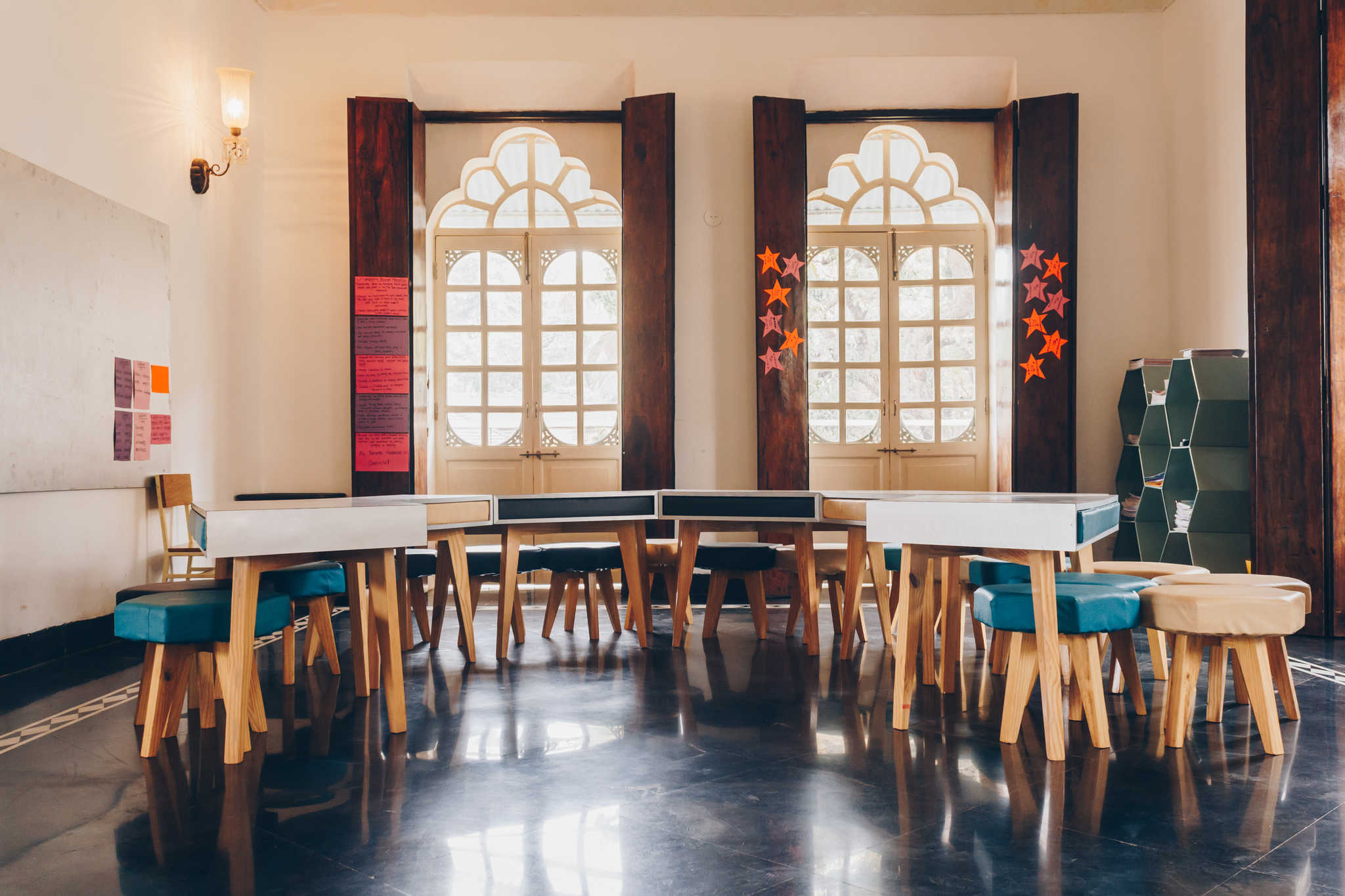
What is the vision of Paradise School?
Our vision is to be true to the real meaning of education – from the Latin ‘educere’ meaning to ‘draw or to lead out’. Most education suppresses children. Our aim is to encourage our kids to emerge as their truest selves. This is a spiritual goal, not just academic. Without the full and proper contribution of children to the future world, who knows what the consequences will be? The advancement of the human race and the planet are at stake. Hence as educators, we carry the greatest responsibility to allow our children to sink and not swim when the tidal waves of change hit.
Therefore, we embrace the future and are not frightened by it. Rather we are inspired and encouraged by all the wonderful possibilities that await us. We truly believe our children will be at the helm of this ship, confidently and powerfully sailing to a brighter day.
Academically, we respect the Cambridge system and work well in alignment with their evolved position of active and dynamic learning, as well as honouring the examination process. We are excited about the doors that open at the university level and are consciously preparing our children for this now.
We are on the cusp of great change. We are handling this tipping point between the old and the new, with flair, courage and genuine innovation.
Optimism to create a better world for our children is what drives us.
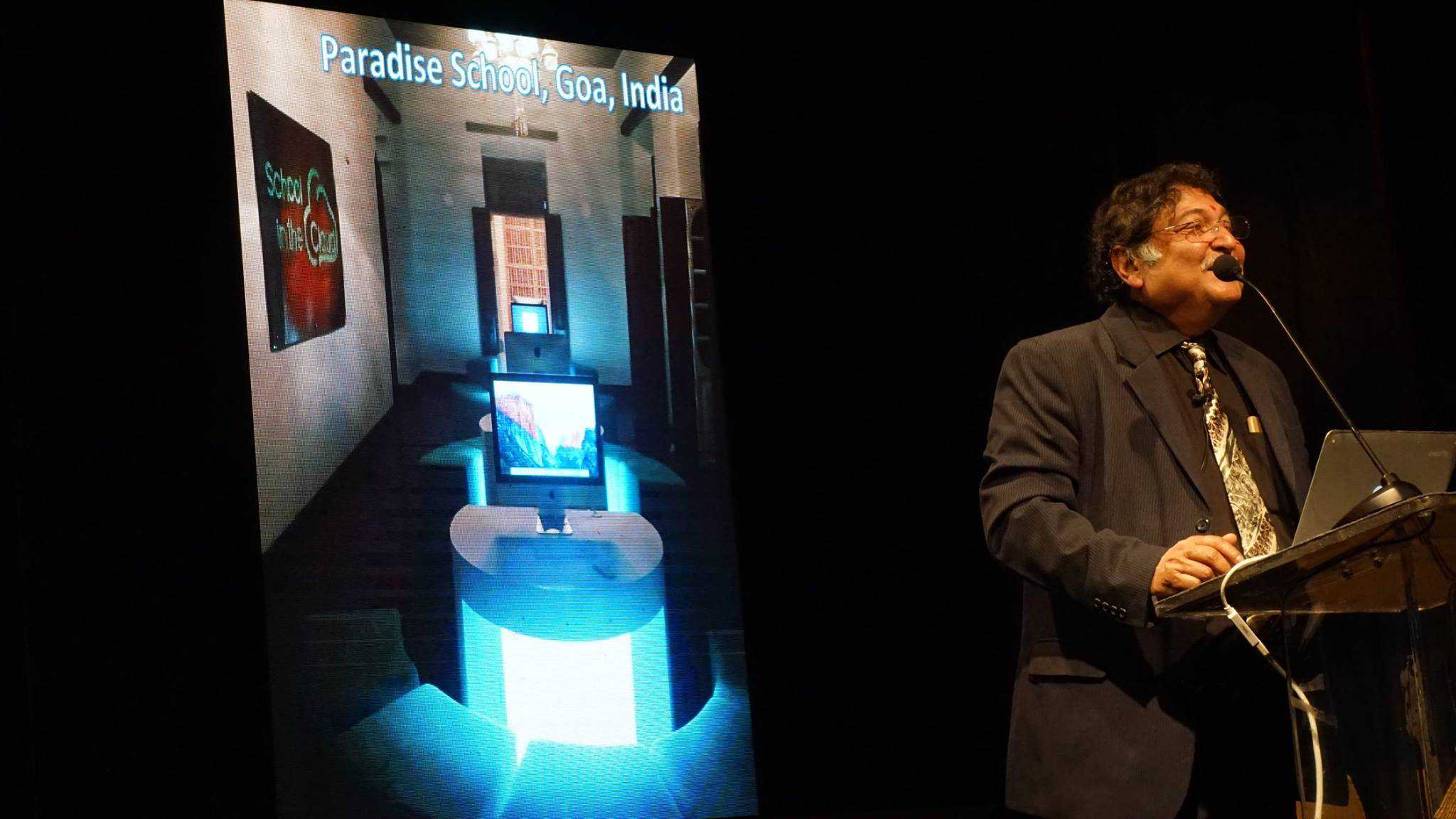
Renowned educator and TED Prize winner Sugata Mitra is the main advisor to Paradise School. How are his ideas of SOLE and School in the Cloud being implemented at Paradise?
Sugata inspires us constantly. He really does take education to the next level, with an argument that is humorous, searingly intelligent and ultimately so wise.
The best thing about Sugata is he puts everyone into a SOLE space, even us as a school. We are always asking ourselves, ‘What is a SOLE School’, ‘How can we best merge the old and new ways of thinking about learning’ and ‘If teachers are not necessary in the age of the internet, then who are we, as teachers?’
My favourite question as a result of my association with Sugata is – ‘What is a self-organising system ?’. This has opened up a profound and mystical journey for me as I establish the world’s first self-organising school. I am sure once this becomes second nature to me, I will be able to share it widely with all. Successful self-organising, on all levels, is the pathway to a very dynamic human race. Let’s start with children mastering it at school.
On a practical level, merging SOLE into a mainstream curriculum has been an amazing adventure in learning. We have found so many interesting techniques for doing so, entirely self-discovered, by my team of passionate and inspired educators. We are organising the first worldwide SOLE Conference ever, to create a forum for all of us to share our findings with other SOLE educators and like-minded teachers and school leaders.
But to give you a simple taste of how it works in our school, Rounak, our Lower Secondary English teacher, asked his learners ‘Why does humour make us feel good?’ as a SOLE question. This unlocked an intense and fun workout for the kids in the SOLE Room to come up with insights.
He then asked them how humour works as a genre in literature – and what does it contribute to the stories we read and watch?
By opening up the topic as SOLE, it ignited their curiosity and lit the flame of their open-minded exploration of the subject. Rounak was then able to take this intellectual enthusiasm and channel it down a curricular highroad.
This, to me, is a perfect example of how SOLE and Cambridge work so well together.

Tell us more about the team behind Paradise School.
The strongest feature of our school is the key business people in our management structure (from trustees, to advisors to investors) who are from Goa. This gives us such a solid base to work from. Other Directors have lived or worked in Goa for over a decade, and we are all committed to creating a world-class, world-changing, inspirational educational hub here. We believe in Goa, what it stands for and its potential. For me, this team is a dynamite combination of power and expertise.
We are partnered with Newcastle University and SOLE Central as the world’s first SOLE School. Sugata Mitra is our Advisor and does workshops and talks with us often.
My Head of School, Academic Coordinator and Primary and Secondary teachers come from international schools from all over India and Goa. What marks them as Paradise faculty is they are serious about breaking new ground in education and are passionate and sincere educators. As the School Leader I give them plenty of space to mine their talent and stretch their wings. I have found giving teachers autonomy liberates their potential like nothing else. Seeing them blossom is as important to me as allowing our children to thrive. This is what creates a genuine educational community – because everybody is growing and learning.
Other collaborators include Apple Education India (and UK) as we are using technology to innovate new learning platforms for our children. We are aiming to become an Apple Distinguished School in the future.
We have also partnered with Alma, a US Student Information System, and are the first to be using their product in India. Alma has been designed by teachers so is intuitive and flexible, which suits us so well. We are really looking forward to getting on board with them, and opening up the app for enhanced parent communication.
Paul Dass OBE and the British Education Centre in Delhi have very kindly shared their huge network of UK Universities with us in order to forge academic ties for the launch of A’Level launch in March 2020. Having direct access to universities abroad is a wonderful feather in our cap for our older students.
Finally, our strongest team is our parents. Without them, the word about Paradise could not have spread so far and wide. We literally went viral on the parent’s network from Goa to Delhi, Mumbai, and Bangalore – to LA, the UK, Europe. We barely advertise, yet our admissions have soared. We listen closely to parents and see them as an integral part of our self-organising community.
The location of the school, including the large Goan mansion with various residential rooms, appears most, unlike the conventional school building structure. What is the motive behind this?
North Goa, where the school is based, is really a series of rural, networked villages. So, there is no ready infrastructure for schools. But when Aurelia came on the market, I knew it was just perfect. A 400-year-old exquisitely restored Goan heritage mansion with large rooms and spacious proportions – ideal for an International School. The owner was very kind to allow us to set up our school there, for which we are eternally grateful. Many people call it a Digital Hogwarts, which makes us laugh. Outwardly, it’s an old building but inwardly it’s high-tech.
We have also now taken on a villa nearby for our Primary School, so we have two gorgeous buildings. Many families have moved to Aldona and surrounding villages to be by the schools, so the whole area is coming up and becoming a lovely school community, of which we are extremely proud.
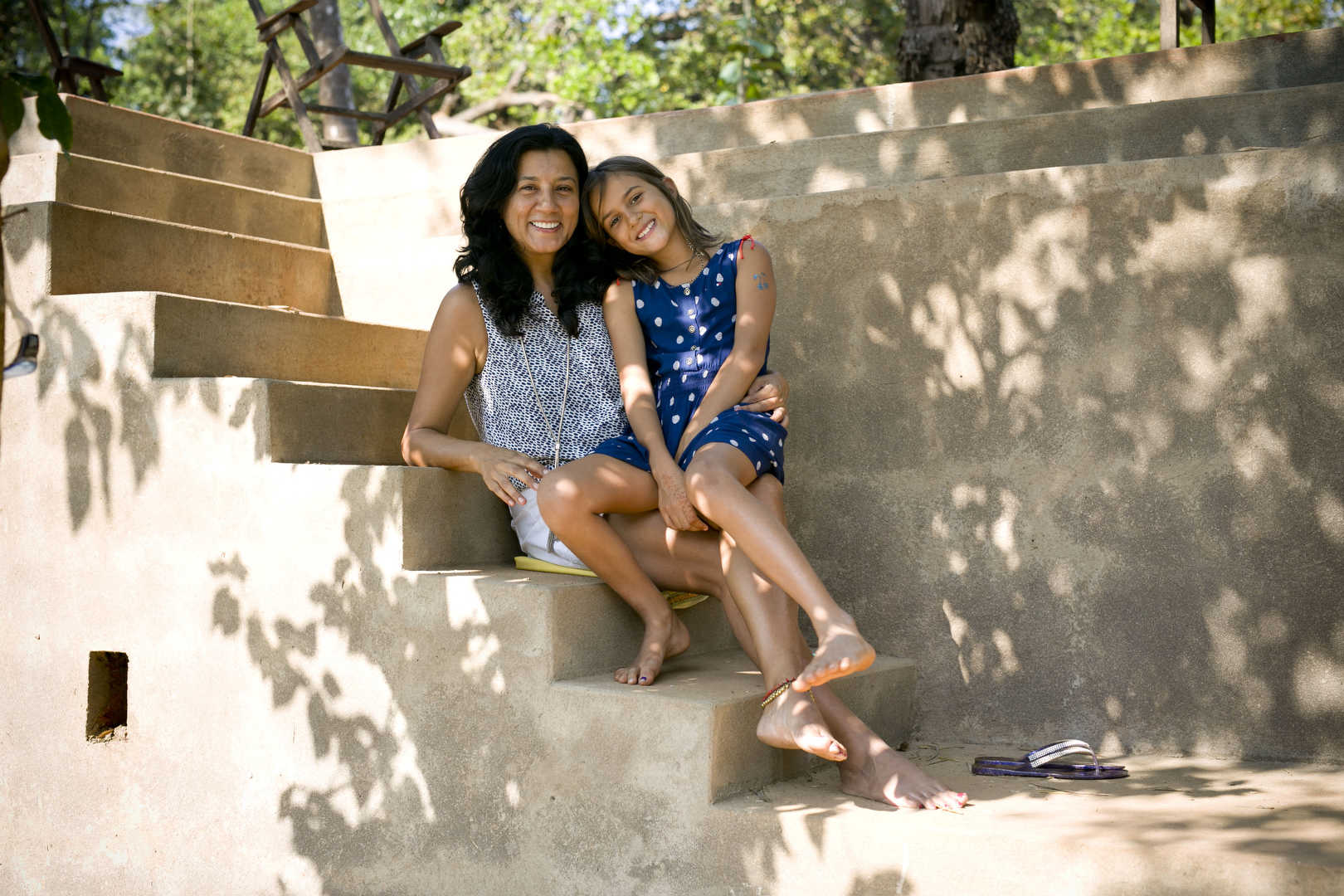
However, this is just Paradise 1.0 and 2.0.
Paradise 3.0 is buying our own land and creating our own building. We’re putting this into place – talking to landowners, investors, architects. This will be our eco-futuristic vision of how a truly advanced 21st century school should look and behave. We cannot wait to share it with the world, and most of all – with our kids.
Education
The Man Who Called His Students Gods: Dwijendranath Ghosh
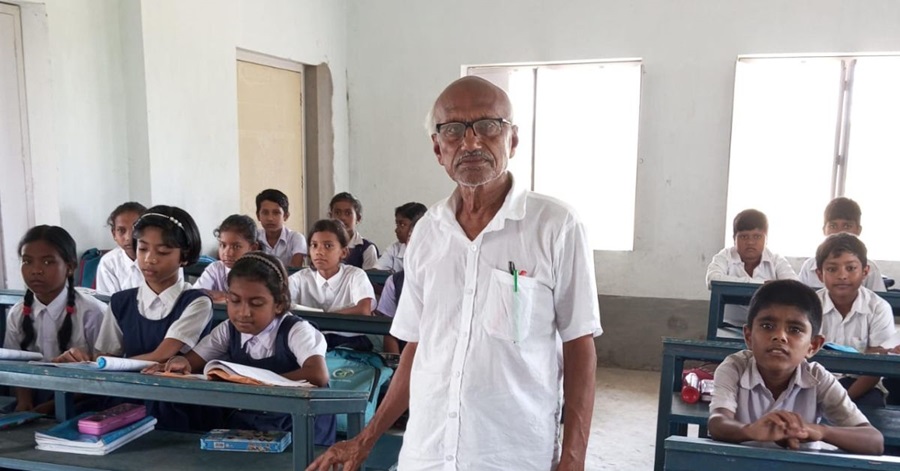
Dwijendranath Ghosh calls himself ordinary.
But how many “ordinary” people spend their retirement building a school from scratch — with no funding, no government salary, and no promise of support? How many choose to teach every day, without compensation, well into their 70s? And how many refer to their students — many from the most marginalised sections of rural Bengal — as gods?
At 78, Ghosh is the heart and soul of Basantapur Junior High School in West Bengal’s Hooghly district. He opens the gate each morning. He teaches children for free. He never left his village — but his impact now reaches far beyond it.
From Barefoot Dreams to Blackboards
Ghosh’s journey is rooted in personal struggle. Growing up in deep poverty, he had no books, no uniforms, and no certainty. His childhood was spent walking barefoot to school, borrowing textbooks, and studying by the glow of kerosene lamps. And yet, he rose. A master’s degree from Burdwan University followed in 1973.
“The pain of those days still haunts me,” he says. “But it also shaped me.”
That pain turned into purpose. Soon after graduating, he and a few friends began running an informal high school in their village—unrecognised, unpaid, but unstoppable. For nine years, they taught with nothing but commitment. When the government finally recognised the school in 1982, Ghosh had already left to take a government job elsewhere, forced by financial needs.
The Second School
He retired in 2008. But instead of resting, he returned to his village and found that little had changed. Girls were still dropping out after primary school. Child marriage was common. A generation was fading into invisibility. So he began again. With no funding, no building, and no staff, he worked for five years to create Basantapur Junior High School.
In 2014, the school was officially recognised. But the journey was never about the paperwork — it was about presence. Every morning, Ghosh arrives before the first bell. He teaches, supports, and uplifts — without compensation. Because for him, teaching is service.
A Volunteer Army — Running on Faith
He’s not alone. A team of young, educated, but unemployed volunteer teachers stands beside him. They could have chosen easier paths, but chose this one out of belief, not benefit. They are unpaid. At times, local donors offer small stipends, but it’s inconsistent. Most are struggling, yet they return every day. “They have given the most valuable years of their lives,” Ghosh says.
The school receives only ₹25,000 a year as a government grant. For three years, even that was inaccessible. What kept it alive? Former students, now grown, are donating what they can. The community is pitching in. Alumni returning to teach. When a government teacher recently disrespected the volunteers, the team almost walked out. But students and parents wouldn’t let them. Ghosh stepped in to calm tensions.
“We can’t let one bad moment undo decades of good,” he told them.

A Temple Against Child Marriage
One of the school’s biggest challenges is child marriage. In villages like Basantapur, girls are often married by 14—seen as burdens, not futures. By offering local access to education, the school has become a shield. Many girls have completed higher education here. But the battle continues. “This trend,” Ghosh says, “is like an infection. It keeps coming back.”
At Basantapur Junior High School, learning is about more than grades. Students perform in cultural shows, play football and cricket, and take part in morning assemblies. They learn to speak, to lead, to dream. There’s no structured life skills module—because the school itself is the life lesson. Students know they are seen, heard, and cared for. Teachers know their work matters. And visitors walk away knowing this is not just a school—it’s a movement.
His empathy, his daily discipline, and his belief in every child form the blueprint that his students follow. And his impact lives in their dreams.
The Final Lesson
What does his family think?
“They worry about my health,” he laughs. “Not about the money.”
His pension is enough for his needs. What he seeks is not comfort — but recognition for his team. “These teachers have earned the right to be made permanent. A hundred times over,” he says.
When asked what keeps him going, he simply says:
“So long as I am in the school, I am alive.”
In an education system obsessed with metrics, Ghosh offers something rare: meaning.
He didn’t build a career.
He built a sanctuary.
He didn’t earn a salary.
He earned generations of gratitude.
And in every child who enters Basantapur Junior High, the final lesson is quietly imprinted:
Service is not sacrifice. It’s grace.
Education
A School Without Walls: The Pehchaan Story, Led by Akash Tandon
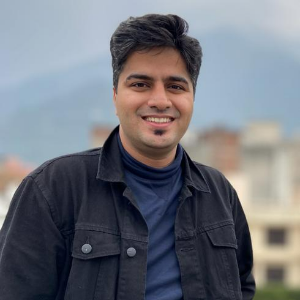
Sometimes the biggest change begins with the smallest act — a few mats on the ground, five curious children, and a group of young volunteers refusing to look away.
In the heart of Delhi, just steps away from the WHO headquarters and the grandeur of Lutyens’ Delhi, an open drain separates two vastly different worlds. On one side: embassies, privilege, policy. On the other: a slum of over 10,000 people, where childhood is often lost to labour, illness, and invisibility.
It’s here that Pehchaan — The Street School — took root.
“We knew we couldn’t change the world. But we could change someone’s world.”
For co-founder Akash Tandon, Pehchaan wasn’t part of a five-year plan. It was a response. A moment of reckoning, watching children play in a toxic drain, unaware of the danger. “This isn’t water,” they told the kids. “It’s poison.” The kids laughed.
That laugh stayed with them.
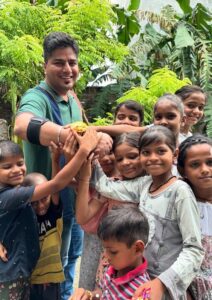
So Akash and his friends returned. Not with speeches or slogans — but with notebooks, mats, and the stubborn belief that every child, no matter their address, deserves to learn.
What started as a weekend effort with five students has now grown into a network of 10 centres, reaching over 1,600 children. And yet, Pehchaan remains fiercely grassroots — no paid staff, no office, no formal backing. Just a living, breathing movement powered entirely by volunteers.
Education That Heals
Pehchaan doesn’t just teach. It listens. It adapts. It believes that the first step to learning is dignity — and that means personalised mentorship, trust, and a curriculum that sees the child beyond the textbook.
Children are grouped into three learning tracks: those already in school who need support, dropouts looking to rejoin, and first-time learners who’ve never stepped inside a classroom. The model is lean but layered — with low student-volunteer ratios, personalised goals, and modules that blend academics with life skills.
There’s dance, storytelling, debate, and painting. There’s coding and digital literacy. And there’s space to be seen.
“My school encouraged me to sing, speak, perform,” says Preeti Adhikari, a longtime Pehchaan volunteer. “These children deserve that too. Because it’s not just about marks — it’s about confidence.”
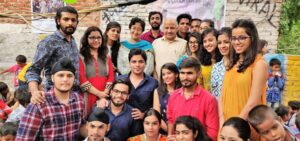
From Drain to Degree
One story stays close to Akash’s heart.
A boy joined Pehchaan in Class 3. He faced pressure to drop out and start working. But he stayed. Pehchaan gave him academic support, counselling, and community. He completed Class 12 with 86%. Then cracked the Delhi University entrance exam.
But the resistance didn’t stop. “What will you earn from books?” neighbours asked. Still, Pehchaan raised the funds, got him into college — and today, that boy teaches at the same centre where he once sat as a student.
“He’s the proof,” Akash says. “That this works. That this matters.”
A System That Runs Without a System
Despite being volunteer-run, Pehchaan operates with the discipline of a corporate team. Every 10 teaching assistants report to a centre head. Weekly reports are filed. Interns handle HR, design, digital media, and curriculum — all without salaries.
In 2024 alone, 8,000+ interns from 75+ colleges joined hands with Pehchaan. Many now lead verticals, train others, or launch their own community learning spaces.
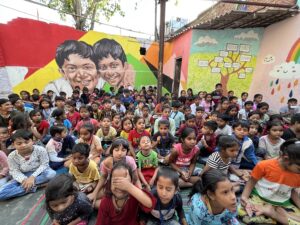
“Earlier I taught five kids,” one intern said. “Now I’m hiring 30 volunteers who each teach five. That’s impact at scale.”
The community, too, is beginning to notice. Blanket drives, nutrition partnerships, and the newly launched Digital Literacy Lab — built with scrap funding and donated laptops — have brought a sense of permanence to the pop-up classrooms.
But the hardest barrier? Still parents.
“You show up for 10 years — then they believe you.”
Convincing slum families to send their children — especially girls — to informal schools was a long battle. Many children still get married by 14. Others are pushed into work.
But when the same group of volunteers keeps returning, year after year, in sun, rain, or smog — trust begins to grow. “We’ve moved beyond convincing now,” Akash reflects. “We’re building the next layer. It’s about dignity.”
Girls who once never stepped outside now give public speeches. Boys once caught in addiction now mentor others.
Akash is clear about the goal: “We don’t want to go pan-India. We want 50 other Pehchaans to emerge. That’s how you scale — by letting go.”
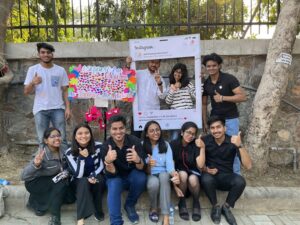
Read the full story in our latest issue, Teacher Warriors 2025.
Education
The Woman Who Refused to Disappear – Aditi Sharma’s Quiet Fight for Education
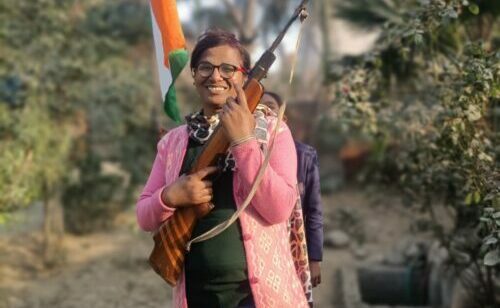
In a quiet corner of Karnal, Haryana, Aditi Sharma runs a small school for underprivileged children. She is the founder, principal, and often, the only teacher. As a transgender woman in North India, her journey has been marked by resistance and isolation — but also by unwavering commitment. Her school may lack formal recognition or resources, but it stands as a space of learning, inclusion, and quiet resilience.
Aditi is not just the founder and principal of Haryana Public School. She is also a transgender woman who dared to imagine a different kind of North India — one where prejudice makes way for possibility, and education belongs to everyone.
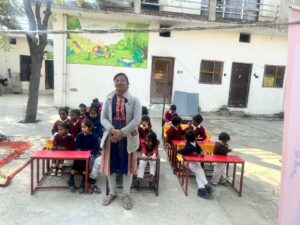
But dreams, she learned early on, come at a cost.
Born and raised in Delhi, Aditi was no stranger to the stereotypes that shadow the transgender community.
“Even educated people carry the assumption that all trans people beg or perform ceremonial rituals. That’s the stereotype I grew up seeing around me,” she says.
It disturbed her and lit the fuse of quiet rebellion.
Leaving Delhi behind, she moved to Karnal with one goal: to build a school not just for visibility, but for children who had nowhere else to go. Her father, unaware she had come out, gave her a 1,200-square-yard plot to build on. “At the time, I hadn’t fully come out. Had they known I was transgender, they wouldn’t have named it to me.”
What she built wasn’t just a school — it was a statement.
In the beginning, there were no teachers, no steady funds, and no blueprint. “I doubted whether I could run a school at all. I had no confidence. But slowly, a few children started coming in. Then a few more. At one point, we had 60–70 students.”
That number dropped, not due to a lack of dedication, but constant harassment. Neighbours let their dogs loose outside. Parents were warned, “Why send your child there? This isn’t a real school.” Some believed her identity disqualified her from leadership, from teaching, from existing with dignity.
She persisted anyway.
Aditi never set out to run a school for underprivileged children. It wasn’t a strategic choice or a targeted mission. It was simply what remained when everyone else walked away. Families who could afford higher fees refused to send their children to a school run by a transgender woman. Teachers quit under social pressure. So she opened her doors to those who had nowhere else to go — children whose families could pay ₹100 a month, sometimes just ₹50, and often nothing at all. “If they don’t learn here, they won’t learn anywhere,” she says. And so she teaches — not because it’s easy, but because no one else will.
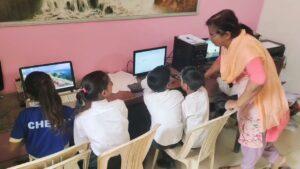
Her day begins at 4 AM — cleaning, prepping, sourcing supplies. By 8 AM, she’s teaching English, guiding students through computing tasks, or painting with them on borrowed desktops. She buys second-hand books herself. There are no permanent staff members. Most teachers leave within weeks. “They say, ‘My family doesn’t want me working here.’ The social pressure is immense.”
Once, a neighbour handed her a one-day-old baby and walked away. Aditi cared for her. When the child fell ill, she spent 12 days at the hospital with her — and the other children. Alone. “They don’t speak to me anymore,” she says of her family. “I’ve learned to let go. If someone doesn’t want to stay in touch, that’s okay. You still have to be happy.”
Haryana Public School is still not recognised by the state government. Despite its large plot, authorities claim she doesn’t meet the criteria. “Other schools on smaller land get recognised,” she says. “But because I’m transgender, they say no.” Her case is currently being reviewed by the Human Rights Commission. Justice Lalit Batra, in a hearing, reportedly said:
“If she doesn’t meet your current rule, change the rule.”
Meanwhile, the children continue to learn — with donated books, basic tools, and the irrepressible will of one woman. Aditi has even built two giant model airplanes — one stretching 20 feet — from scrap and wood. “They don’t fly, but they spark curiosity. Ten children can sit inside. It makes them dream.”
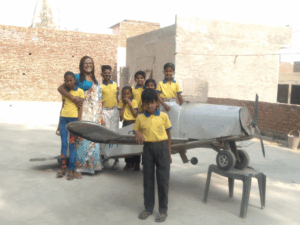
And dreams are something she insists on, even when the world offers no applause. “One child had developmental issues. No school would take him. People told me I was wasting my time. But he deserved a chance.”
Sometimes, appreciation is scarce. Respect even more so. “When parents don’t respect you, neither do their children,” she admits. “When your own life is a constant struggle, it becomes hard to build emotional bonds.”
But she still shows up every day. Reporters ask why so many people visit her school. “Because we’re doing something that shakes the norms,” she tells the children. “This school is special.”
And they believe her. Because children don’t discriminate. Adults do.
Her message to the transgender community is clear:
“Don’t wait for society to accept you. Build your own path. Even if you’re the only one walking it.”
Aditi Sharma may be the only openly transgender woman in North India running a school. But she’s not asking for sympathy. Just space. Just dignity. Just the right to show up — and not disappear.
“Even if only one child comes,” she says,
“I’ll keep the doors open.”
Read the full story in our latest Teacher Warriors issue: https://scoonews.com/magazines/scoonews-june-july-2025-digital-edition/
Education
A Vision Beyond Sight – How Aarti Takawane is Rewriting Futures for Blind Girls
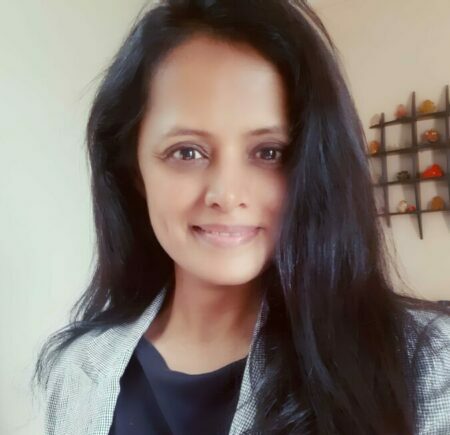
Sometimes, the most extraordinary journeys begin with an ordinary restlessness — that nagging sense that comfort isn’t enough. For Aarti Takawane, that quiet realisation led her to walk away from a secure corporate job, and towards a mission she never imagined for herself.
Aarti’s early career looked like everything most people might aspire to: a steady job, good salary, and the kind of stability that makes parents proud. But deep down, she felt a pull that numbers and meetings just couldn’t satisfy. With a background in psychology and a genuine desire to help others, she always knew her purpose lay in people, not just profit.
That spark turned into a flame when she met Mrs Meera Badve, founder of Niwant, an organisation supporting blind students in higher education. A casual encounter at a social event became a life-changing conversation. Aarti took a leap of faith and began volunteering at Niwant — and for the first time, she felt what it was like to make an impact where it truly mattered.
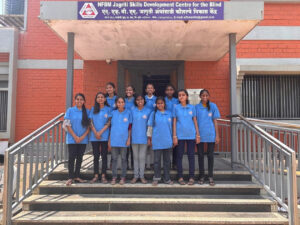
Her path eventually led her to the National Federation of the Blind’s Jagriti School for Blind Girls in Pune — a place that today houses 110 blind girls, 99% of whom come from rural areas. Here, the girls don’t just study; they live, learn, and grow together in an environment that believes in what they can do, rather than what they can’t.
When Aarti joined Jagriti, she began as a psychologist, focusing on the social and emotional development of the girls. But the more she listened to their dreams and struggles, the more she saw the barriers waiting for them after school. “When you give them the right tools, you’re not just giving them a skill — you’re giving them back their choice,” she reflects.
Visually-challenged girls face a stark reality once they step out into the world. Apart from limited government quota jobs in banks or insurance, there were few opportunities that truly matched their abilities. So, Aarti decided to do something about it.
“True empowerment means they can live with dignity, not just survive.”
She founded the Skill Development Centre inside Jagriti School — a space where blind girls could learn practical, job-ready skills that tap into their real strengths. Many of the students have remarkable listening and verbal abilities. So the Centre offers courses that play to these strengths: voice modulation, foreign languages, recruitment training, and more. There are also classes in computer literacy, digital accessibility testing, and even coaching for competitive exams.

But the real magic lies in how the Centre stays rooted in reality. The team works closely with organisations like Vision-Aid India and inclusive employers to keep training aligned with what the industry actually wants. Each student’s strengths and interests are mapped out with care, so the training feels personal and purposeful.
Equally important is what happens beyond the classroom. Many girls arrive at Jagriti shy, anxious, or unsure of themselves. They may have never used a screen reader, travelled alone, or spoken up in public. So the Centre pairs technical skills with confidence-building: mobility training, decision-making workshops, life skills, and emotional support.
“They didn’t need sympathy — they needed direction, support and opportunity,”
Funding is always a tightrope act — a mix of donations, CSR partnerships, and the occasional government grant keeps the Centre alive. It covers trainer salaries, hostel facilities, assistive technology, and learning materials. The school is committed to full transparency with its supporters, many of whom return year after year because they can see exactly where their help is going.

Aarti knows that none of this would be possible without the right people leading the way. Every teacher or trainer goes through orientation in assistive technology and inclusive education. Sensitisation workshops and regular feedback from students make sure the environment stays supportive and respectful.
As the world changes, so do Aarti’s dreams for the Centre. She hopes to introduce advanced digital modules, remote work training, and a stronger network of inclusive employers. But what excites her most is the chance to rewrite how society sees disability, not as a barrier, but as a different kind of potential waiting to be unlocked.
For the 110 girls who call Jagriti School home, Aarti Takawane is more than just a teacher. She’s proof that sometimes, the best things really do happen by accident — and that true vision is not about what we see, but what we choose to do about what we can’t.
Read the full story in our issue of Teacher Warriors 2025 at https://scoonews.com/magazines/scoonews-june-july-2025-digital-edition/
Education
“We Sleep on Walls Here”: Shubhanshu Shukla Talks to Indian Students from Space
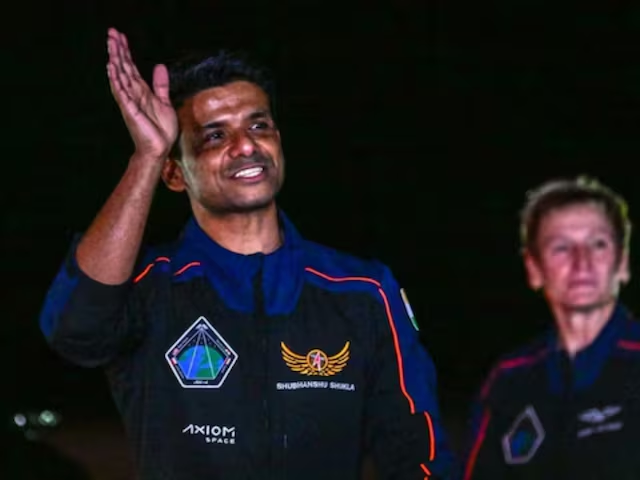
Astronaut Shubhanshu Shukla, currently stationed aboard the International Space Station (ISS), answered questions from schoolchildren during a live interaction hosted under ISRO’s Vidyarthi Samvad Program.
The session, designed to bring students closer to the realities of space science, turned into a heartwarming and humorous conversation about food, sleep, and the sheer wonder of viewing Earth from space.
When asked how astronauts sleep in zero gravity, Shukla smiled and explained: “There is no floor or ceiling in space. Some of us sleep on the wall, some on the ceiling. We have to tie ourselves down so we don’t float away while sleeping.”
The conversation became sweeter when Shukla revealed that he brought familiar Indian flavours with him into orbit. “I have carried gajar ka halwa, moong dal halwa, and mango juice with me from India,” he said, to the delight of the young audience. He clarified that the halwa was specially medicated for space missions, not made at home — a detail that sparked laughter and curiosity alike.
The astronaut also spoke about daily life aboard the ISS, including how exercise is essential to counter microgravity. “We ride bicycles here, but there are no seats. We strap ourselves in with belts,” he told the children, who were both fascinated and amused by the image.
For Shukla, however, the highlight of being in space remains the view of Earth. “That blue sphere, that light mist… seeing Earth from here is the most beautiful experience. It’s hard to describe in words.”
Addressing mental well-being, he shared how astronauts stay connected with their families. “Technology helps bridge the distance. We can talk to our loved ones, and that keeps us grounded — even when we’re not.”
Also present during the interaction was Group Captain Angad Pratap, a fellow member of the Gaganyaan mission crew, who encouraged students to consider careers in aviation and space science.
For many students, the session was a dream come true. “It felt like science fiction,” said one participant. “Now I believe I can go to space one day.”
As India continues its rapid progress in space exploration, conversations like these serve as reminders that inspiration is as critical as infrastructure — and that sometimes, a simple chat with an astronaut can launch the imagination of an entire generation.
Education
Banu Mushtaq’s International Booker Win Is a Wake-Up Call for Indian Schools to Reclaim Literature
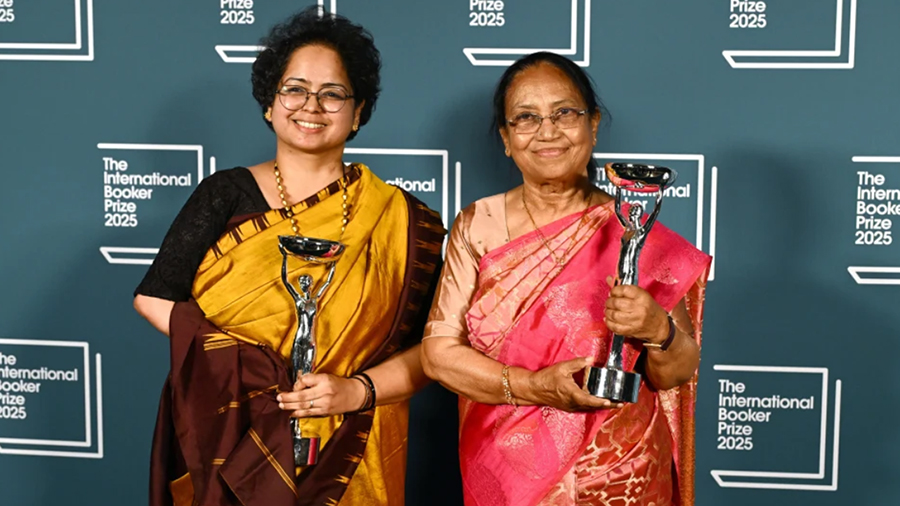
When Banu Mushtaq became the first Kannada author to win the prestigious International Booker Prize for her short story collection Heart Lamp, she didn’t just make literary history—she reignited a conversation about the role of literature in shaping society, and the way schools can nurture future writers not just as hobbyists, but as cultural forces.
Mushtaq, along with translator Deepa Bhasthi, was honoured for Heart Lamp, a collection of stories chronicling the lives of Muslim women in Karnataka across three decades. The stories are rooted in resistance, critique of religious and patriarchal structures, and everyday courage. The recognition was not just for the literary craft, but for the emotional and moral clarity the stories offer—a kind of truth that is rarely rewarded in global spaces. But the International Booker did just that.
And yet, how many students in Indian classrooms today know what the Booker Prize even is? While the Grammys, Oscars and even YouTube Play Buttons are common cultural currency among young people, literary awards often pass under the radar. This needs to change.
The International Booker Prize is one of the most prestigious literary honours in the world, recognising the finest works of fiction translated into English. It opens up space for voices that often remain local to reach a global stage. For students in India, this is an opportunity to understand that writing, especially in regional languages, is not a dead-end path. Yes, it may not offer the instant gratification of a viral video or influencer deal—but as Mushtaq’s life proves, it can shape public discourse, win global accolades, and leave behind a legacy that matters.
For educators, this is a teaching moment. Banu Mushtaq’s story is as much about literary merit as it is about resilience. She wrote in Kannada, a language she adopted over her native Urdu. She survived deep personal trauma, including a suicide attempt, and faced social backlash for her activism. She was a councillor, a journalist, and a lifelong advocate for women’s rights. These are the kinds of role models classrooms should be spotlighting—especially for young girls who need to see that stories, quite literally, can change lives.
Heart Lamp may not be appropriate for every age group, but its themes—identity, voice, justice—can be introduced in many ways. Schools should consider book discussions, literary circles, or even creative writing prompts inspired by such works to encourage students to find their voice, in whatever language or form it may come.
This win is also a reminder that educators need to broaden the definition of success they present to students. STEM, coding, and commerce continue to dominate career conversations, but it’s equally crucial to show that the arts—especially literature—have their own path to impact and influence. We hope for a time when young writers are not asked “what else do you do?” but are valued for what their words bring to the world.
Banu Mushtaq’s Booker Prize win is not just an individual triumph—it’s a collective opportunity. For schools, for students, and for all of us who believe that a powerful story can change minds, communities, and someday, the world.
Education
John King’s Book ‘Teacher By Teacher’: A Global Tribute to the Transformative Power of Education
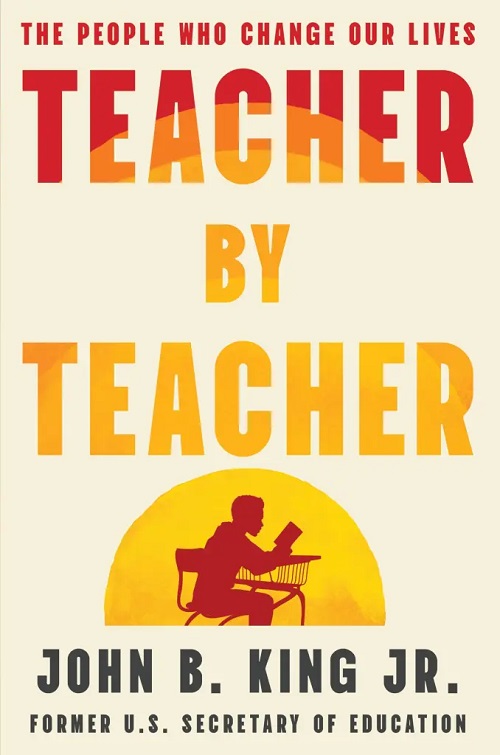
For John B. King Jr., former U.S. Secretary of Education, school wasn’t just a place—it was a lifeline. In his newly released memoir, Teacher By Teacher: The People Who Change Our Lives, King traces his journey from a grief-stricken child in New York to the corridors of educational leadership in Washington, D.C. But while the book is rooted in the American educational experience, its messages about the impact of teachers resonate far beyond U.S. borders.
In an exclusive interview with Education Week’s Sam Mallon on May 5, 2025, King reflected on his memoir, the teachers who shaped his life, and the ongoing challenges educators face worldwide.
A Childhood Saved by Teachers
King’s story is a testament to the power of mentorship. Following the death of his mother and his father’s battle with Alzheimer’s, school became King’s sanctuary. “Teachers saved my life,” he shared, recalling how educators believed in him, nurtured his potential, and gave him hope even when the world outside seemed dark.
From those formative years, King went on to earn degrees from Harvard, Columbia, and Yale. His career as a teacher, school principal, education policymaker, and eventually, U.S. Secretary of Education became a journey of giving back. The memoir celebrates not only King’s personal resilience but the quiet heroism of teachers everywhere.
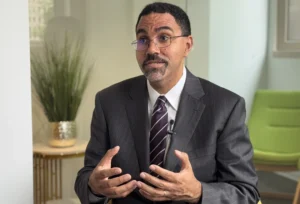
Former Secretary of U.S Education John King. Image Source- EducationWeek
While King’s book is anchored in American education, the messages it carries are universally relevant. Teachers worldwide are grappling with challenges—overcrowded classrooms, mental health issues among students, and ever-changing education policies. In his interview with Education Week, King highlighted how schools must be more than academic factories. They must be safe havens, places of healing, and hubs of inspiration.
King advocates for “trauma-informed practice”—an approach where teachers are equipped to understand and support students facing emotional challenges. This is a lesson that transcends borders, as schools globally encounter rising mental health concerns among students.
Teacher Evaluations and Policy Pressures
King’s time as U.S. Secretary of Education was marked by ambitious reforms—from implementing the Every Student Succeeds Act (ESSA) to pushing for more rigorous teacher evaluation systems. But looking back, he acknowledges a key lesson: change cannot be forced without teacher buy-in.
“Teachers can’t be bombarded with reforms,” he explained. Change must be gradual, and educators must feel a sense of ownership over new policies.
King’s narrative is ultimately about hope. In his memoir, he shares how a single teacher’s encouragement can change a student’s life trajectory. He recalls how his father’s legacy as New York’s first Black deputy schools chief was kept alive by a former student who, years later, shared how impactful his father’s teaching was.
Teaching is more than a job—it is a calling. It is a force for social good, a platform for mentorship, and a means to nurture the next generation of thinkers, leaders, and dreamers. King’s Teacher By Teacher is a reminder that educators everywhere have the power to transform lives, often without even knowing it.
Though written from an American perspective, Teacher By Teacher is a love letter to educators everywhere. It is a call to support teachers, to understand the pressures they face, and to recognise the life-changing impact they can have on their students.
For a world that often takes teachers for granted, John King’s memoir is a reminder of the heroes who stand at the front of every classroom, ready to make a difference.
Excerpts referenced in this article were taken from John King's exclusive interview with Education Week on May 5, 2025, in Washington, conducted by Sam Mallon for Education Week.
Education
Rewriting Ambedkar: Why Students Must Know the Man Beyond the Constitution
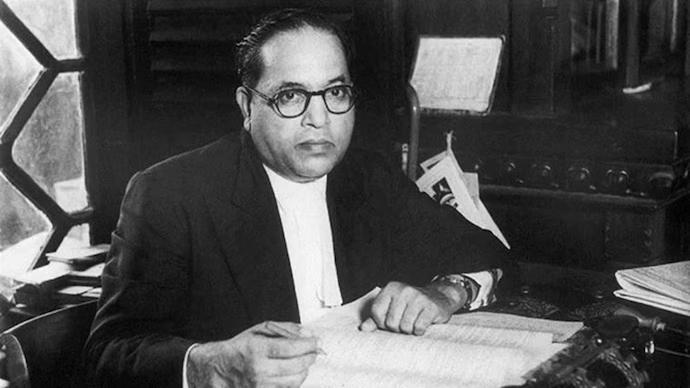
Ambedkar Jayanti Special | ScooNews
Dr. Bhimrao Ramji Ambedkar. Most students in India recognise the name—largely as the “Father of the Indian Constitution.” If you ask a Class 10 student what Ambedkar stood for, you’ll likely get a respectable summary: chairperson of the Drafting Committee, architect of constitutional equality, and perhaps a passing reference to his fight against untouchability. But that’s where it ends.
This is not a failure of our students. This is a failure of our books.
Because Babasaheb Ambedkar was not just a jurist or a political figure to be summarised in three bullet points under Civics. He was one of the most radical, intellectually fierce, and unapologetically liberal minds India has ever known. And if we are talking about modern India—its democracy, its dissent, its diversity, its demands for dignity—then Dr. Ambedkar isn’t just relevant, he is foundational.
And yet, he remains tragically under-read and under-taught.
The Man We Didn’t Read Enough About
Ambedkar’s life is a masterclass in resilience, intellect, and reform. Born into the most marginalised community in India, he went on to become the first Indian to pursue a doctorate in economics from Columbia University, studied law at the London School of Economics, and returned to a country that still wouldn’t allow him to sit beside upper-caste students.
But Ambedkar did not stop at personal success. He turned his education into ammunition. His writings dissected caste not just as a social issue but as an economic and psychological reality. In works like Annihilation of Caste, he boldly challenged not just the religious orthodoxy but also Mahatma Gandhi—a sacred figure for many—in ways that were considered almost blasphemous at the time. And even today.
Unlike Gandhi, who sought reform within the caste system, Ambedkar demanded its demolition. Where Gandhi appealed to morality, Ambedkar appealed to reason, law, and modernity.
This discomfort with Ambedkar’s sharp, unflinching views is perhaps why our textbooks package him safely—as the dignified lawyer with a pen, not the roaring revolutionary with a voice.
More Than a Constitution-Maker
To say Ambedkar gave us the Constitution is both true and painfully incomplete.
- He gave us the right to constitutional morality, the idea that the Constitution isn’t just a set of rules but a living document that must be interpreted in the spirit of liberty, equality, and justice.
- He envisioned reservations not as charity but as corrective justice.
- He believed that a true democracy must have “social democracy” at its base—not just the right to vote but the right to dignity in everyday life.
- And he warned, prophetically, that political democracy without social democracy would be India’s downfall. He was not just designing India’s governance system, but was rather trying to develop India’s moral spine.
A Voice for Individual Freedom—Louder Than We Knew
“I measure the progress of a community by the degree of progress which women have achieved.”- Bhim Rao Ambedkar
Ambedkar’s liberalism was far ahead of his time. He consistently advocated for individual rights in the truest sense. There’s documented evidence that he argued for the decriminalisation of same-sex relationships, seeing it as an issue of individual freedom long before such conversations entered our legal discourse.
His economic ideas—rarely taught—favoured state-led industrialisation, fair wages, and social security decades before these became policy buzzwords. His writings on women’s rights were equally progressive, particularly through the Hindu Code Bill, which sought to grant women equal property rights, rights to divorce, and freedom in marriage—a bill so radical for its time that it was shelved, only to return years later in diluted forms.
Why Today’s Students Need Ambedkar—Unfiltered
In an age where freedom of speech is contested, when marginalised voices still struggle for space, when gender and sexuality are still debated as ‘issues’ instead of identities—Ambedkar is the teacher we didn’t know we needed.
We need to stop sanitising him for our syllabus. We need high schoolers to read Annihilation of Caste in their literature classes and understand the intersections of caste, religion, and gender in history—not just from an upper-caste nationalist lens but from the view of the people who fought to be seen as human.
We need Ambedkar in economics classrooms, debating his views against today’s neoliberal models.
We need to introduce him as an intellectual, a radical thinker, a critic of Gandhi, a reformer of Hindu personal law, a journalist, a linguist, a labour rights advocate, a rebel with a cause.
Because the freedoms we enjoy today—freedom of religion, freedom of expression, freedom to love, to choose, to protest, to dream—all have Ambedkar’s fingerprints on them.
If our education system truly believes in nurturing critical thinkers and empathetic citizens, then Dr. Ambedkar cannot remain a footnote or a ceremonial portrait garlanded on April 14th.
He must be read. He must be debated. He must be understood. Because the more we know about Ambedkar, the more we know about ourselves—and the democracy we’re still trying to build.
Education
“Be the Change in a Changing World”: Anita Karwal and Anju Chazot Reflect on NEP 2020
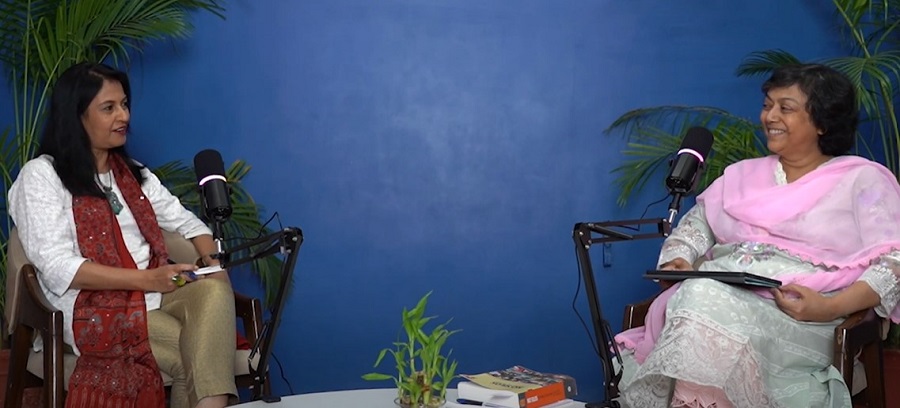
In a deeply reflective and engaging episode of the NEP Tunes podcast, Dr. Anju Chazot, education reformer and founder of Mahatma Gandhi International School (MGIS), Ahmedabad, sat down with Mrs. Anita Karwal, former Secretary of School Education, Government of India, to explore one fundamental question: How do we prepare children for a rapidly changing world?
Titled “Be the Change in the Changing World,” the episode offers a powerful conversation between two veterans of Indian education who have shared a decades-long friendship—and a mutual vision for a holistic and transformative school system.
“You can’t prepare children for tomorrow with the pedagogy of the day before yesterday.”
Drawing inspiration from John Dewey’s famous words, the episode begins by addressing the urgent need for policy literacy among stakeholders in education. Mrs. Karwal and Dr. Chazot underscore that the pace of global change—technological, environmental, economic, and emotional—has far outstripped the ability of traditional education systems to keep up. “We are in a VUCA world—volatile, uncertain, complex, ambiguous,” Karwal reminds listeners, calling for schools to adapt to this reality rather than resist it.
Decolonising the Classroom
A significant portion of the conversation focused on the historical context of schooling in India. Dr. Chazot draws parallels between today’s school system and Michel Foucault’s “cell and bell” model, which mirrors the prison system—marked by uniforms, bells, and rigid structures. Tracing the roots of modern schooling to the Prussian military model and colonial-era policies introduced by Lord Macaulay, both speakers lamented how education was once used as a tool to produce clerks for the Empire, rather than creative, entrepreneurial individuals.
“Colonialism didn’t just take away our resources; it colonised our minds,” Chazot observed. Karwal added, “The gurukul system was rooted, contextual, and sustainable. The colonial model replaced it with standardisation and control.”
Disruptions and the Call for Change
From climate change to AI, from the gig economy to rising mental health challenges—today’s youth are living in an era of non-stop disruptions. Mrs. Karwal shared a poignant insight: on the very day she retired from her government service (30 November 2022), OpenAI launched ChatGPT. “As a senior citizen, I would have felt useless had I not tried to understand this disruption,” she said, urging listeners to stay updated with technological trends.
Mental health also featured prominently in the discussion. The World Health Organization reports a 25% increase in global anxiety and depression cases, especially among the youth. Schools, Karwal said, must acknowledge and address this invisible epidemic, and create environments that are nurturing—not anxiety-inducing.
Why NEP 2020 Is a Game Changer
Against this backdrop, both educators believe the National Education Policy 2020 is a timely and visionary document. “It’s not just about academics—it’s about the whole child,” said Chazot, pointing to NEP’s focus on holistic development across cognitive, emotional, physical, and ethical domains.
Key elements of the NEP and the newly released National Curriculum Framework (NCF) discussed in the podcast include:
-
A shift from rote learning to competency-based, experiential learning
-
Focus on Indian traditions and cultural rootedness
-
Moving away from exam-centric teaching, especially in early years
-
Recognition of multilingualism and contextual learning
-
Encouragement of critical thinking, creativity, and adaptability
“Learning to learn is the most essential skill of the future,” Karwal stressed. “Children must be ready to unlearn and relearn throughout life.”
The Future of Jobs
To illustrate the rapidly changing employment landscape, both speakers listed a host of emerging careers—from Prompt Engineers and Drone Fleet Managers to Climate Data Analysts and Digital Detox Specialists. “Just imagine,” Chazot quipped, “if I were a child again, I’d become a Prompt Engineer and finally fulfil my parents’ dreams of being an engineer—with a creative twist!”
Karwal, on the other hand, expressed a desire to become a Human-Machine Team Manager—a futuristic role bridging collaboration between people and machines.
Their message was clear: the world our children are entering is drastically different from the one their parents and teachers grew up in. And education must keep up.
A Takeaway Challenge for Listeners
To wrap up the episode, the hosts offered a unique call-to-action: ask yourself what job you would pick today if you could go back in time again. Then, explore new professions with your family or students. From LinkedIn job listings to the World Economic Forum’s reports, Karwal recommended several tools to research emerging careers. They invited listeners to write in with their findings and reflections.
“This exercise is not just for students,” said Dr. Chazot. “It’s for parents, teachers, and policy-makers alike. We must all become learners again.”
Final Thoughts
In an era where the only constant is change, the NEP Tunes podcast is a timely resource to help educators, parents, and students reimagine the purpose of schooling. With leaders like Anju Chazot and Anita Karwal at the helm of the conversation, the journey towards meaningful transformation in Indian education seems not only possible—but exciting.
🟡 This article is adapted from the NEP Tunes podcast hosted by Dr. Anju Chazot. You can listen to the full episode on YouTube. Here is the video-
Education
Sunbeam Indiranagar Shines in Academics, Arts, and Sports, Cementing Its Legacy of Holistic Education
-

 Education2 months ago
Education2 months agoCBSE’s ‘Sugar Boards’ Initiative: Tackling the Sweet Crisis in Indian Schools
-

 Education3 months ago
Education3 months agoIs Your School Following These Mandatory CBSE Committees?
-
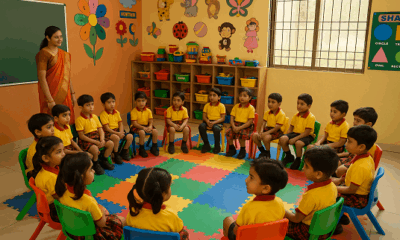
 Education3 months ago
Education3 months agoMaharashtra to Regulate Pre-Primary Education with New Law Aligned to NEP 2020
-
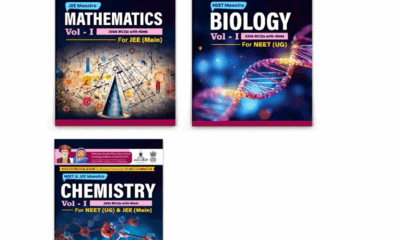
 Education3 months ago
Education3 months agoMAHAJYOTI’s Book Distribution Scheme to Empower 7,000 OBC Students Preparing for JEE/NEET & MHT-CET
-
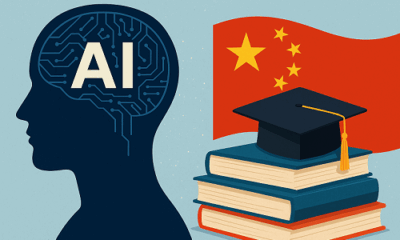
 Education3 months ago
Education3 months agoChina Embarks on Ambitious AI-Driven Education Reform to Build a ‘Strong Education Nation’ by 2035
-
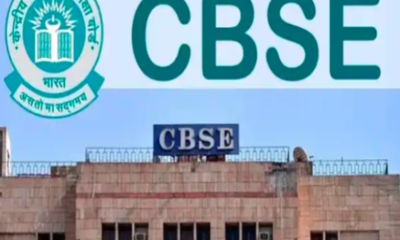
 Education3 months ago
Education3 months agoCBSE Introduces Mandatory Bridge Course for Classes 6 to 12 in Chhattisgarh Under NEP 2020
-
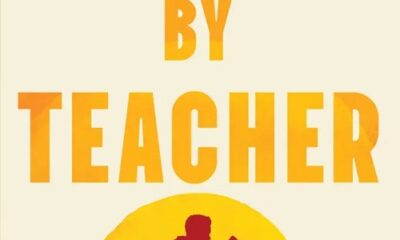
 Education2 months ago
Education2 months agoJohn King’s Book ‘Teacher By Teacher’: A Global Tribute to the Transformative Power of Education
-
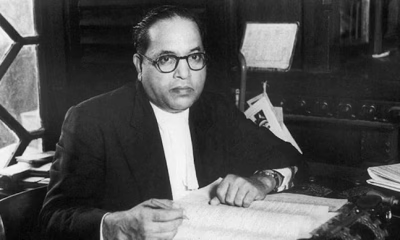
 Education3 months ago
Education3 months agoRewriting Ambedkar: Why Students Must Know the Man Beyond the Constitution
-
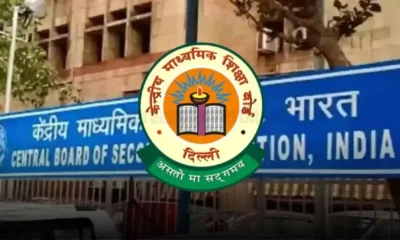
 Education3 months ago
Education3 months agoCBSE Mandates 50-Hour Annual Training for Teachers, Declares STEM as 2025 Theme
-
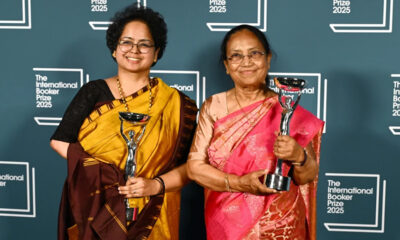
 Education2 months ago
Education2 months agoBanu Mushtaq’s International Booker Win Is a Wake-Up Call for Indian Schools to Reclaim Literature




